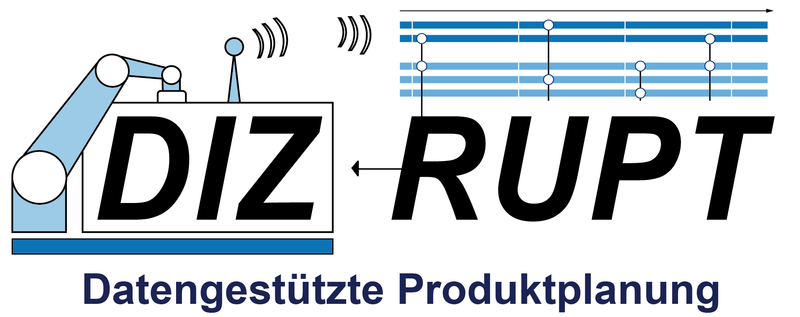For the past two years, scientists from the Heinz Nixdorf Institute at the University of Paderborn have been working with partners from industry and research on a novel method for strategic product planning based on product usage data. In the joint project "DizRuPt - Data-supported Retrofit and Generation Planning in Mechanical and Plant Engineering", they are investigating how companies can be supported by clever data analysis in identifying improvement potential for the next product generation or products already in operation. The project is being funded by the German Federal Ministry of Education and Research (BMBF) for three years as part of the "Innovations for tomorrow's production, services and work" program. At a digital milestone meeting, the participants now adanced a positive interim balance.
Products and applications in almost all areas of life are collecting and generating more and more data during their time of use. "We are familiar with this data collection and analysis from our everyday lives, for example, from social media," explains Maurice Meyer, a scientist in the Advanced Systems Engineering group led by Prof. Dr.-Ing. Roman Dumitrescu at the Heinz Nixdorf Institute. "User behaviour is analysed in detail on a platform like Facebook. The resulting data is continuously evaluated to offer users a better product - in the form of individualized advertising or precisely fitting suggestions for interesting pages." Similar potential exists in mechanical and plant engineering, because machines and plants are becoming increasingly intelligent. As a result, they are continuously generating and collecting larger amounts of data from customers during operation. "We are working on methods and tools for analysing and using this data so that the manufacturers of the machines and plants can use it to improve their products in the long term," Meyer explains. On the one hand, he says, the data collected can be used to better evaluate and optimize the behaviour and performance of the machines and systems in operation. On the other hand, the data analysis should help to optimally understand the behaviour and expectations of customers in order to better meet requirements in the future. "In today's world, customers demand individually tailored products. The analysis of data from operations provides the basis for the development of such products. The DizRuPt project thus addresses another megatrend in addition to digitalization," says Meyer.
At the digital milestone meeting in March, project partners were already able to present numerous results. They also discussed open questions and risks that they want to work on intensively in the future. One critical aspect, he said, is making data available. Many companies shy away from releasing their usage data to the manufacturer, as it sometimes contains confidential information about their own production process. "One goal for the future is to develop a coherent overall concept. We have the individual components and procedures. We want to optimize them so that everything meshes and is easy to use," explains Meyer. Another important concern is practical relevance. The methods and tools developed should also be applicable for smaller companies without extensive prior knowledge in the analysis of usage data.
Further information at: www.dizrupt.de


